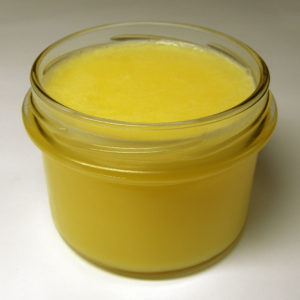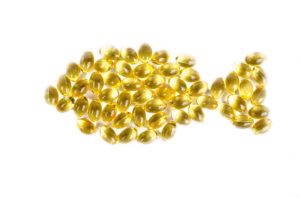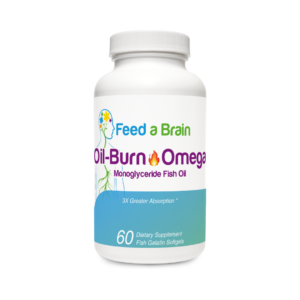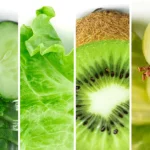The Ultimate Guide to Healthy Fats: What You Need to Know for Optimal Health
Get the Guide to Fats and Oils from the How to Feed a Brain Book!
Fats are one of the most controversial topics in nutrition. For decades, we were told that fat—especially saturated fat—was bad for heart health. This sparked the low-fat craze of the late 20th century, leading food manufacturers to replace fats with sugar and artificial ingredients.
Fast forward to today, and research now shows that healthy fats are essential for brain function, hormone production, and overall vitality. But with so much conflicting information, how do we know which fats to eat and which to avoid? Let’s break it down.
The Fat Controversy: Why Are We So Confused?
In the late 1960s and early 1970s, health authorities began demonizing dietary fat, particularly saturated fat, as a primary cause of heart disease. This led to the rise of low-fat, high-carb diets—ironically contributing to the obesity and diabetes epidemics.
To make low-fat foods taste better, manufacturers added high-fructose corn syrup (HFCS), which was introduced in 1975 as a cheaper, sweeter alternative to sugar. While this made processed foods hyper-palatable, it wreaked havoc on metabolism, blood sugar regulation, and inflammation.

The Role of Oxidation: Why Some Fats Are Toxic
Unlike fresh produce or meat, fats don’t rot—but they do become rancid through oxidation. When oils oxidize, they generate free radicals that contribute to inflammation, hormone disruption, and neurotransmitter imbalances. Worse, the body can mistakenly incorporate these damaged fats into tissues, leading to long-term health issues.
The Good, the Bad, and the Artificial: What to Eat and What to Avoid
The Worst Fats: Artificial Trans Fats
Artificial trans fats, also known as hydrogenated oils, are the most harmful fats for heart health. These oils are created by bubbling hydrogen through vegetable oils at high temperatures, turning liquid oils into solids. This process extends shelf life but makes the fat highly inflammatory.
One major source? Margarine. This “butter alternative” was once touted as a heart-healthy option, but studies have linked trans fats to heart disease, diabetes, and even breast cancer. Denmark was the first country to ban trans fats, leading to a 50% reduction in heart disease deaths over 20 years.
The American Heart Association and the Misleading Advice on Oils
Surprisingly, the American Heart Association (AHA) once promoted hydrogenated oils as “heart-healthy” and still recommends vegetable oils like canola, soybean, and corn oil—despite their well-documented inflammatory effects.
The problem? These oils are high in polyunsaturated fatty acids (PUFAs), which are extremely prone to oxidation. When exposed to heat, light, or air, they produce harmful compounds that contribute to chronic inflammation, oxidative stress, and hormone imbalances.
PUFAs in Fried Foods: A Recipe for Damage
Fried foods cooked in PUFA-rich oils (such as vegetable, corn, and soybean oil) are loaded with oxidized fats. These damaged oils create free radicals that accelerate aging and increase the risk of chronic disease.
For a full list of healthy and unhealthy oils, check out our Printable Handout on Fats!
The Best Fats for Your Brain and Body
If you want better brain function, balanced hormones, and reduced inflammation, here’s what you should be eating:
High-Quality Saturated Fats
That’s right. Despite what has been pushed by the food industry s unhealthy, saturated fats are highly resistant to oxidation, making them the best choice for cooking. They also serve as precursors for vital hormones like pregnenolone, DHEA, testosterone, and estrogen.
Some of the best sources include:
- Grass-fed butter and ghee
- Coconut oil
- Animal fats like tallow and lard from pasture-raised animals
- Egg yolks from pasture-raised chickens

Debunking the Cholesterol Myth
For years, cholesterol was blamed for causing heart disease. But did you know your brain produces 1,300 mg of cholesterol every day? That’s because cholesterol is essential for:
- Building brain cells
- Supporting neurotransmitters like serotonin and dopamine
- Maintaining cell membrane integrity
- Producing sex hormones
Does Dietary Cholesterol Actually Cause Heart Disease?
The short answer is no. New research links low cholesterol diets to higher risks of cancer, depression, and anxiety. In fact, even vegan diets—which contain no dietary cholesterol—don’t necessarily prevent heart disease. A case report by Dr. Michael Greger found that a 66-year-old vegan who had avoided cholesterol for 40 years still died of a heart attack.
Cholesterol is too large to cross the blood brain barrier. However, its so important to note that our brain makes about 1,300mg on site EVERY DAY!
New studies are now associating LOW cholesterol diets with an increased risk of cancer, anxiety, and depression. If this wasn’t enough to make you reconsider your thoughts on cholesterol, then consider this: Dr. Michael Greger (a vegan doctor) reports of a 66 year old man dying of a heart attack after being a vegan for 40 years!
Vegan means no animal products are consumed which means that he ate a cholesterol-free diet for 40 years, and still died of a heart attack. Serum cholesterol can be a factor in heart disease, but it is not the cause of heart disease.
Is it Saturated Fat or Oxidative Stress?
High levels of oxidative stress, rancid omega-6 oils (i.e. vegetable, canola, soybean oil, etc.), trans fats, and elevated homocysteine levels are much more indicative of heart disease than serum cholesterol alone. Its important to note that serum cholesterol, in your blood, is different than dietary cholesterol we get from eating animal products.
Dietary cholesterol does not raise serum cholesterol in the blood. Serum cholesterol (like HDL, LDL, and VLDL) is produced by the liver and our body will make this even if we don’t eat animal products. It’s only when this serum cholesterol oxidizes that it causes damage to the veins and arteries so reducing inflammation and oxidative stress is the important factor here.
Monounsaturated Fatty Acids

The next category of healthy fats that we recommend are monounsaturated fatty acids (MUFA’s). The most widely available oils high in MUFA’s are olive oil and avocado oil. Eating whole avocados and olives are also a great way to get these fats as well as hazelnuts and macadamia nuts.
It’s important to note that some people get dysbiosis and insulin resistance from excessive saturated fats because of differences in our microbiome and genetics. I personally get bloated when I eat lots of liquid saturated fats. That’s why I get my saturated fats in whole foods like meat, and use avocado oil and olive oil for the remainder of my fat intake.
One of the greatest things about avocado oil is that is can maintain its integrity even at very high temperature upwards of 500 degrees Fahrenheit!
This means you can still eat your deep-fried foods without the guilt as long as you cook them in avocado oil.
Are There Any Healthy PUFA’s?
Polyunsaturated Fatty Acids (PUFA’s) includes omega-3 fatty acids (like alpha-linolenic acid) and omega-6 fatty acids (like linoleic acid). Both of these can become rancid through light, heat, and oxygen exposure. Industrial seed oils like soybean oil, corn oil, vegetable oil, grapeseed oil, etc. are ALWAYS oxidized because of the processing methods.
Diets high in PUFA’s (especially excess omega-6 fats) have been connected to low testosterone as well as the previous diseases I mentioned. Avoid conventionally fried foods unless you want to have chronic inflammation, and have a low libido. PUFA’s can be safe in moderation when they are contained inside of a nut, seed, or dark leafy green.
The cellular structure of the plant will protect the PUFA’s from the light, heat, and oxygen that would otherwise cause them to go rancid. This is what makes those particular fats much safer to consume in whole food than say vegetable oil.
Even so, many experts recommend not going above 4 oz. of nuts and seeds per day because they can still be inflammatory when consumed in excess.
(Dr. Terry Wahls used her custom nutritional protocols to put her MS in remission; click here for Terry’s Full Story)
What About Omega-3’s?

Lastly, we cannot say enough good things about omega-3’s! Both plant and animal sources of omega-3 fatty acids can have beneficial effects on brain health, cardiovascular health, and inflammation. Omega-3 and omega-6 fats are both PUFA’s, and thus easily become rancid. This means we must take great care in processing fats like fish oil to prevent oxidation.
The vegetarian omega-3’s (alpha linoleic acid/ALA) come from hemp, chia, and flax seeds as well as in leafy greens, but only in trace amounts. The other form omega-3’s (EPA/DHA) mainly come from fatty fish like salmon, mackerel, sardines, anchovies, etc. It is also in beef and eggs but in much lower quantities. However there is one vegan source that is cold-pressed from algae.
EPA & DHA Are The Most Important Brain Fats
These other two forms of omega-3’s are some of the most beneficial. If you cannot get them from food for whatever reason, then we highly recommend adding a supplement into routine. I recommend about 1,400mg of combined EPA and DHA. However, you can take higher doses if you are deficient (80% of the population is deficient).
We have a full article on Omega-3’s in General.
We also have a Full Article on DHA that you can read to learn about what they do.
Get Your Guide to Fats and Oils from the How to Feed a Brain book!
Some of our favorite brands for high-quality fats:

Get the Guide to Fats and Oils from the How to Feed a Brain book!
Read the Fat Chance Series about Cavin’s experience with ketogenic metabolism




